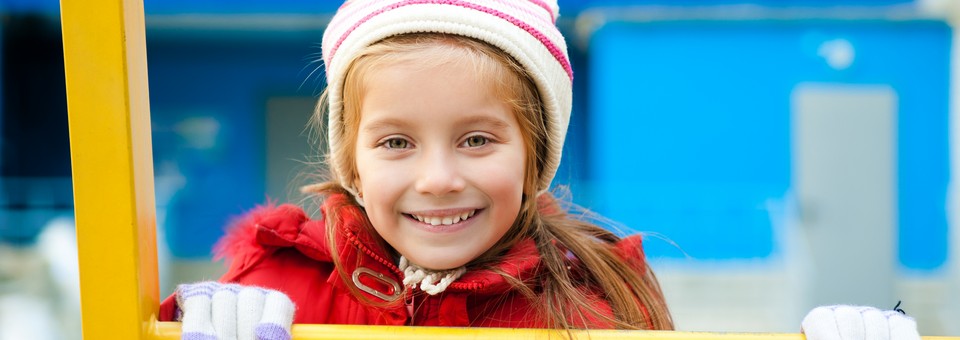Systematic review and classification of: Green thoughts - happy children (2. ed.)
DOI:
https://doi.org/10.7557/25.7601Keywords:
Systematic review, material package, kindergarten, thought awareness, emotional awareness, psychosocial environment, psychosocial development, developmentAbstract
Background: This article is a summary of current knowledge of the effects of the program Grønne tanker – glade barn [Green thoughts – happy Children]. Grønne tanker – glade barn is a program consisting of a material package to be used by staff in the kindergarten. The purpose is to increase children's awareness of their own feelings. The intention is that this will make the kids better in understanding their own and others emotional reactions, increase their ability to regulate their own emotions, and thereby also contribute to a good psychosocial environment. The material can be used as a universal preventive intervention strengthening the psychosocial development for all children. In addition the material can be used to support children with more need of support. The non-governmental organization Voksne for Barn [Adults for Children] is responsible for implementing the program in Norway, and they offer training. The purpose of this article is to examine whether Grønne tanker – glade barn is effective when used in ordinary practice in Norway.
Method: This review is based on information about intervention and systematic search of literature search in the databases Embase, Medline og Psykinfo, NORART Cochrane, Cristin, NORA, SCOPUS and SweMed.
Results: The results include a summing up of the program description, the effect of eventual studies, quality of research and implementation. The intervention is well described in the material and through two papers. The program has good theoretical and empirical basis within the field of cognitive behavioral therapy, but there are no studies exploring the efficacy. The material is available for implementation for all kindergartens. Beyond a brief training session, there is not offered any implementation support. Nor are there systems to secure good implementation quality. Probably, the program is applied very differently in various kindergartens, which may disturb the effects of the program.
Conclusion: The program Grønne tanker – glade barn is satisfactorily described, and it’s well adapted to curriculum of the kindergarten. Studies of the effects and how the program best can be implemented is necessary to reveal whether the intervention is effective. A good effect study will, however, requires a more precise description of the aims in the program. A good theoretical foundation strengthens the likelihood that the intervention can promote good mental health and reduce the difficulties for children at an early age.
Grønne tanker – glade barn is classified at evidence level 2 - Theoretically grounded interventions.
References
Beck, J. (2011). Cognitive therapy. Basics and beyond (2. utgave). New York: Guilford.
Bennett, D. S. & Gibbons, T. A. (2000). Efficacy of child cognitive-behavioral interventions for antisocial behavior: A meta-analysis. Child & Family Behavior Therapy, 22, 1-15. doi: 10.1300/J019v22n01_01
Dalgard, O. S., Mathisen, K. S., Nord, E., Ose, S.,
Rognerud, M. & Aarø, L. E. (2011). Bedre føre var…. Psykisk helse: Helsefremmende og forebyggende tiltak og anbefalinger. Rapport 2011:1. Oslo:Folkehelseinstituttet.
Dearing, E., McCartney, K. & Taylor, B. A. (2009). Does Higher Quality Early Child Care Promote Low-Income Children’s Math and Reading Achievement in Middle Childhood? Child development, 80 (5), 1329–1349. doi: 10.1111/j.1467-8624.2009.01336.x
Eng, H. & Ulvund, S. E. (27.02.2015). Beskrivelse og vurdering av tiltaket Grønne tanker – glade barn. I M. Martinussen (red), Ungsinn, tiltak nr. 45. hentet fra http://www.ungsinn.no/post_tiltak/gronne-tanker-glade-barn/
Essau,C. A. Conradt,J., Sasagawa, S. & Ollendick, T. H. (2012). Prevention of anxiety symptoms in children: Results from a universal school-based trial. Behavior Therapy, 43, 450-464. doi:10.1016/j.beth.2011.08.003
Fabes, R., Eisenberg, N., Nyman, M. & Michealiu, Q. (1991). Young children's appraisal of others' spontaneous emotional relations. Developmental Psychology, 27, 858-866. doi: 10.1037/0012-1649.27.5.858
Holte, A. (2012). Barnehager – mest for barn. Tidsskrift for Norsk psykologforening, 49 (11), 1130-1133.
Martinussen, M., Reedtz, C., Eng, H., Neumer, S-P., Patras, J. & Mørch, W.-T. (2016). Kriterier og prosedyrer for vurdering og klassifisering av tiltak. Tromsø: UiT Norges arktiske universitet.
Neil, A. L. & Christensen, H. (2009). Efficacy and effectiveness of school-based prevention and early intervention programs for anxiety. Clinical Physchology Review, 29, 208-215. doi:10.1016/j.cpr.2009.01.002
Mørch, W-T. (2011). Kognitiv atferdsterapi for barn med atferdsvansker. Tidsskrift for Norsk Psykologforening, 48, 40-45.
Raknes, S. (2014). Grønne tanker – glade barn. Oslo: Gyldendal Akademisk.
Raknes, Johansen, K. W., Tørnes, H & Håvardstun, T (2016). Psykologisk kunnskap for barnehagebarn. Psykologi i kommunen, 1, s. 45-53
Samhandlingsreformen. Rett behandling – på rett sted – til rett tid. (2009). St. melding 47 (2008-2009). Oslo: Det kongelige helse- og omsorgsdepartement.
Sylva, K., Melhuish, E., Sammons, P., Siraj-Blatchford, I., Taggart, B. (2011). Pre-school quality and educational outcomes at age 11: Low quality has little benefit. Journal of Early Childhood Research 9, 109–124.
Waddel, C., Hua, J. M., Garland, O. M., Peters, R. D. & Kimberley, M. (2007). Preventing mental disorders in children: A systematic review to inform policy-making. Canadian Journal of Public Health, 98, 166-173.
Wiese, I. (2014). ""Grønne tanker, glade barn"." Magasinet voksne for barn (Nr. 2): 12-13. Hentet fra http://www.vfb.no/no/vi_tilbyr/publikasjoner/magasinet_voksne_for_barn/magasinet_2014/Magasinet+Voksne+for+Barn+02%2F14.b7C_wtfMZL.ips

Downloads
Additional Files
Published
How to Cite
Issue
Section
License
Copyright (c) 2016 Helene Eng, Stein Erik Ulvund

This work is licensed under a Creative Commons Attribution-NonCommercial 4.0 International License.

